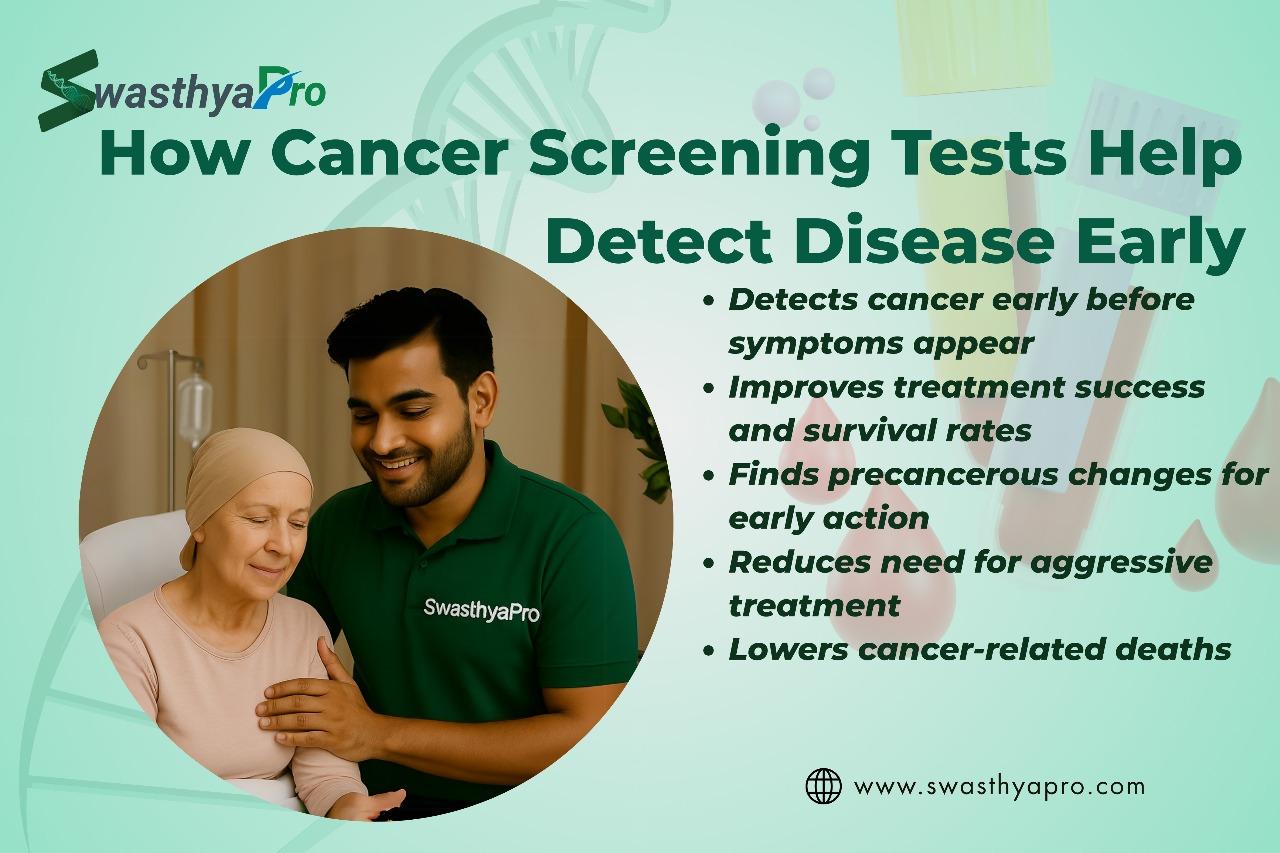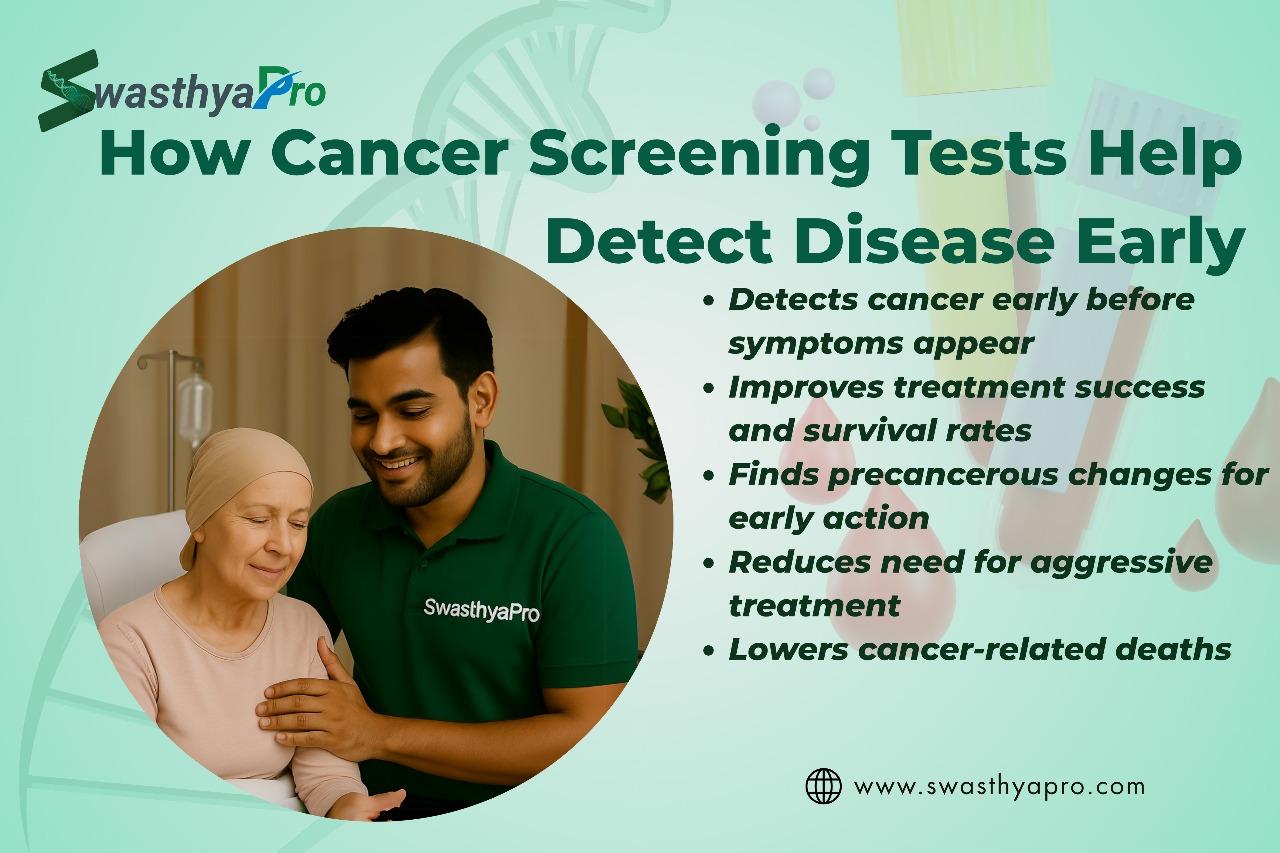Home cancer screening test: How Accurate and Safe Are They?


In today’s world, where convenience and health are both top priorities, many people are turning to at-home cancer screening test kits. These tests promise early detection from the comfort of your home — no hospitals, no long waits, no appointments.
But the real question is: how accurate and safe are they?
This article explores the truth behind the rising trend of at-home cancer screening test options, including what they test for, how they work, their limitations, and when to trust them.
What Is an at-home cancer screening test?
An at-home cancer screening test is a medical testing kit you can order online or buy at a pharmacy. You collect the sample yourself (blood, stool, or saliva) and send it to a certified lab for analysis. The results are shared digitally, usually within a few days.
These tests are designed to check for specific markers or abnormalities that could signal the early stages of cancer.
Examples include:
-
Stool DNA tests for colon cancer
-
HPV tests for cervical cancer
-
FIT kits (fecal immunochemical test)
-
Blood-based tumor marker tests for prostate, ovarian, or liver cancer
Some full-body test kits also include cancer screening test components bundled in.
Why At-Home Testing Is Gaining Popularity
1. Privacy and Comfort
No hospital visits. No awkward waiting rooms. You can perform the cancer screening test in the privacy of your home.
2. Convenience
Most at-home kits offer:
-
Online booking
-
Home delivery of the kit
-
Free pickup of the sample
-
Results via email or app
It fits perfectly into busy schedules.
3. Affordability
At-home options are often cheaper than in-clinic screenings. Some kits are available for under ₹1000, depending on the test type.
How Accurate Are They?
Here’s the honest answer: some are reliable — others are not.
The accuracy of an at-home cancer screening test depends on:
-
The type of cancer being screened
-
The technology used in the kit
-
The sample collection method
-
The certification and reputation of the lab involved
For example:
✅ FIT kits for colon cancer have a high accuracy rate for detecting blood in stool — a warning sign for colon polyps or cancer.
✅ HPV self-sampling kits have shown results comparable to doctor-collected samples in detecting high-risk HPV strains.
⚠️ Tumor marker tests, however, can be less reliable alone. They may produce false positives or false negatives without supporting clinical evaluation.
So while at-home testing is a good starting point, it should not replace diagnostic testing or professional medical advice.
What Are the Limitations?
While convenient, an at-home cancer screening test has several limitations:
1. Sample Collection Errors
Improper handling can affect accuracy. For example, contaminated stool or insufficient blood can skew results.
2. No Physical Examination
Unlike hospital-based screening, there’s no doctor to physically examine you or spot visual signs (like skin lesions or lumps).
3. Limited Cancer Types
Not all cancers have at-home tests. For many, early signs are only visible through scans, biopsies, or internal exams.
4. Lack of Immediate Follow-Up
You’ll need to find a doctor separately if results are abnormal. Some kits include free teleconsultation, but not all do.
Are They Safe?
Yes — if used correctly and purchased from trusted sources. Always ensure:
-
The lab is NABL, CAP, or ISO certified
-
Instructions are followed step-by-step
-
The test is not expired
-
You review results with a licensed medical professional
The cancer screening test itself is non-invasive and safe. The key is what you do after you receive your results.
When Should You Use an at-home cancer screening test?
These kits are best for:
-
Initial screening, especially if you’re unable or unwilling to visit a clinic
-
People in remote areas with limited access to healthcare
-
Busy professionals looking for flexible health options
-
Patients doing routine monitoring of known markers
If your result is positive or unclear, immediately consult a doctor for diagnostic follow-up.
Reputable Brands Offering These Kits in India
-
Tata 1mg Labs
-
Redcliffe Labs
-
Healthians
-
Apollo Diagnostics
-
Thyrocare
They offer various cancer screening test panels along with full body checkups and home sample collection.
Final Thoughts
An at-home cancer screening test can be a smart, practical tool — especially for those who prefer privacy and convenience. But it’s not a replacement for professional care.
Think of it as the first step in a larger health journey. If your test comes back clear, great — keep monitoring annually. If it shows something abnormal, don’t panic — it just means it’s time for a deeper look with a doctor’s help.
Health is personal. And now, thanks to at-home options, it's also easier to take charge of than ever before.
- Art
- Causes
- Best Offers
- Crafts
- Dance
- Drinks
- Film
- Fitness
- Food
- Giochi
- Festival
- Gardening
- Health
- Home
- Literature
- Music
- Networking
- Altre informazioni
- Party
- Religion
- Shopping
- Sports
- Theater
- Wellness



